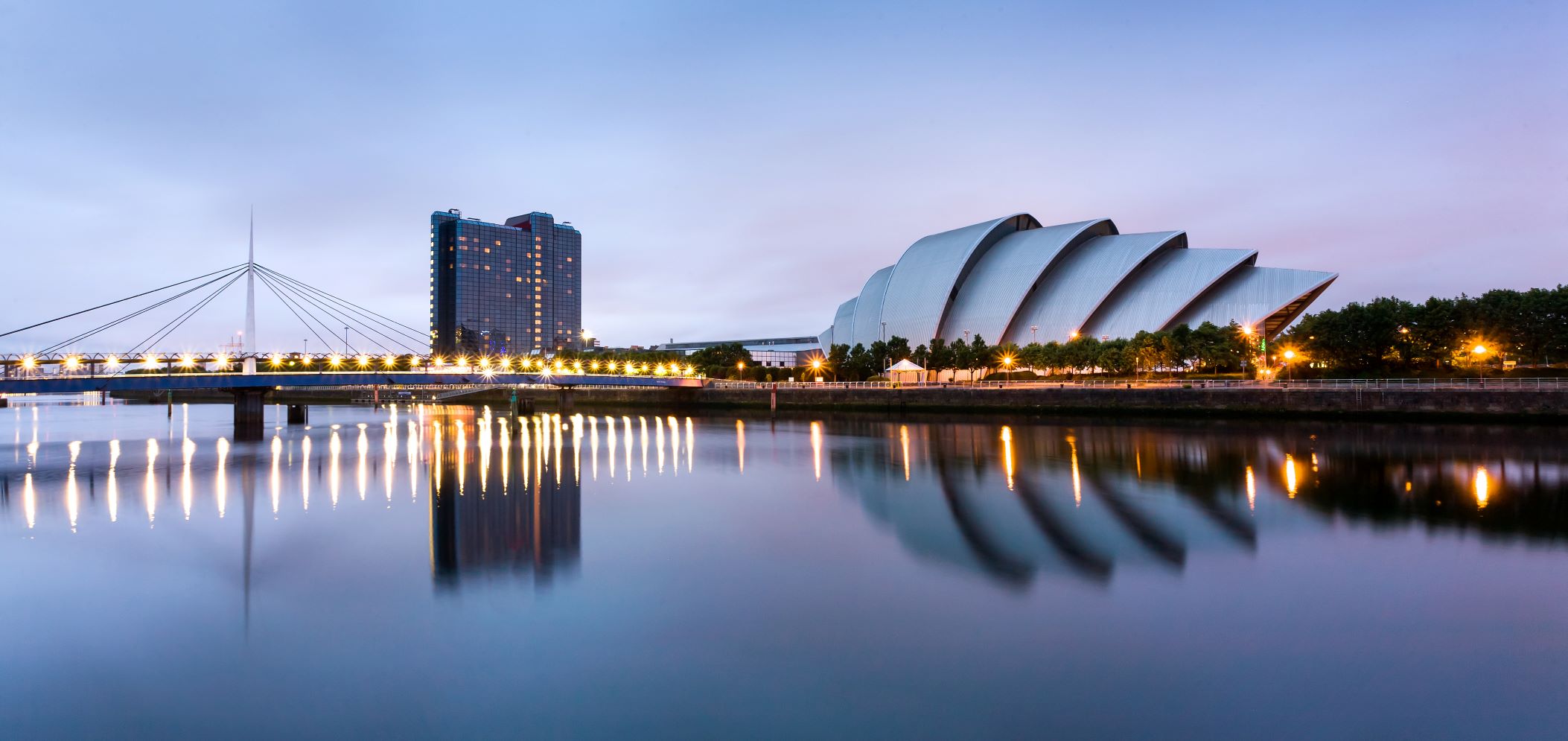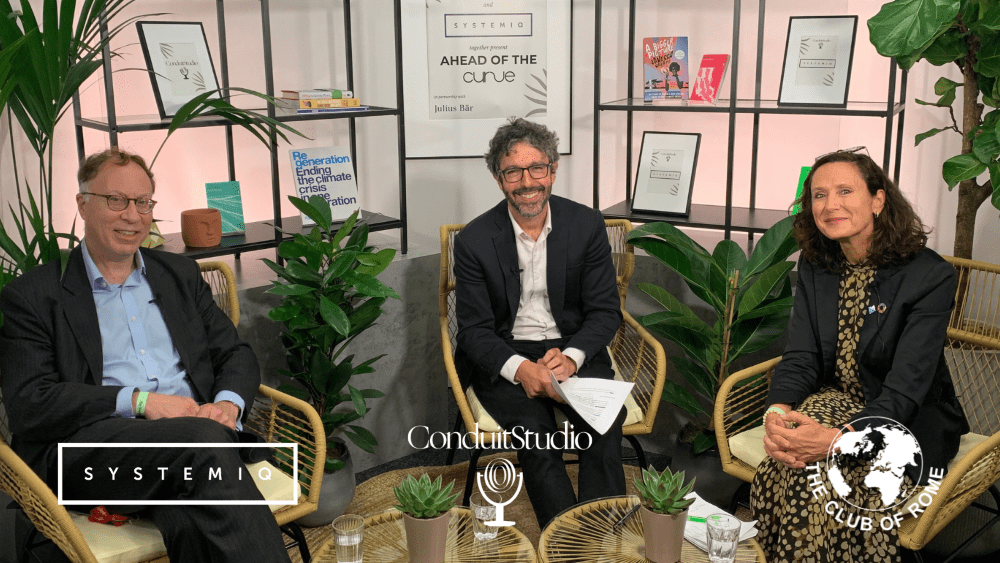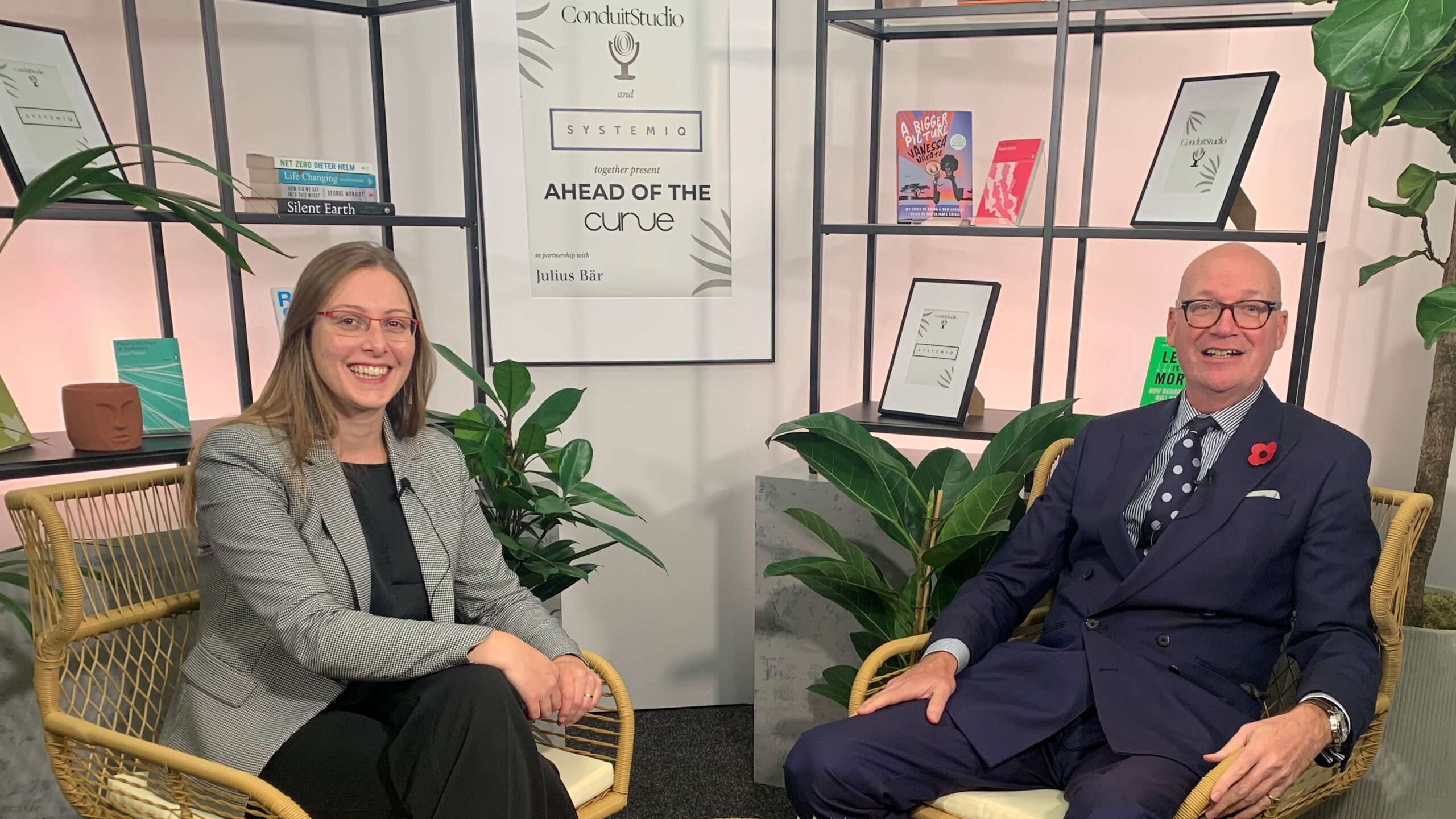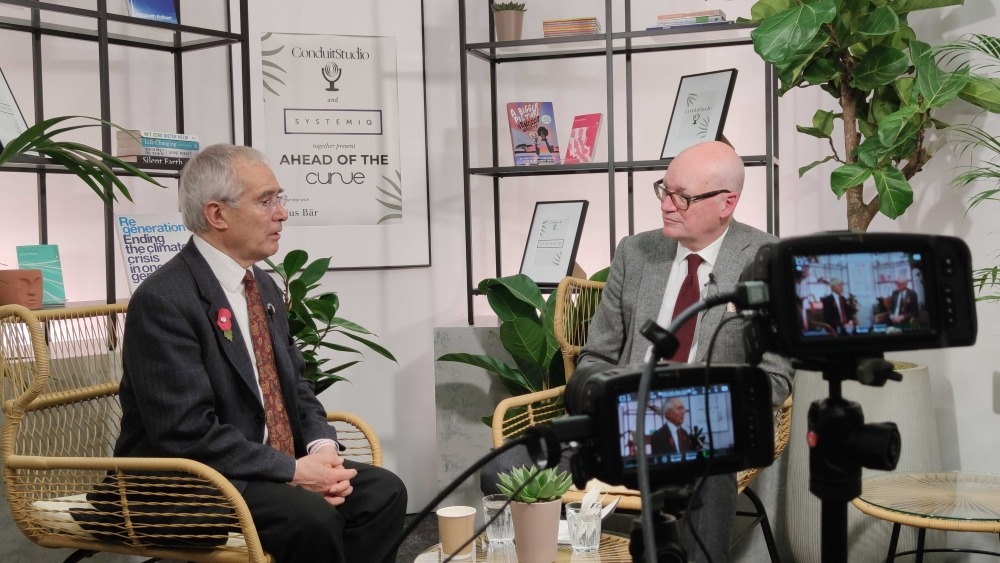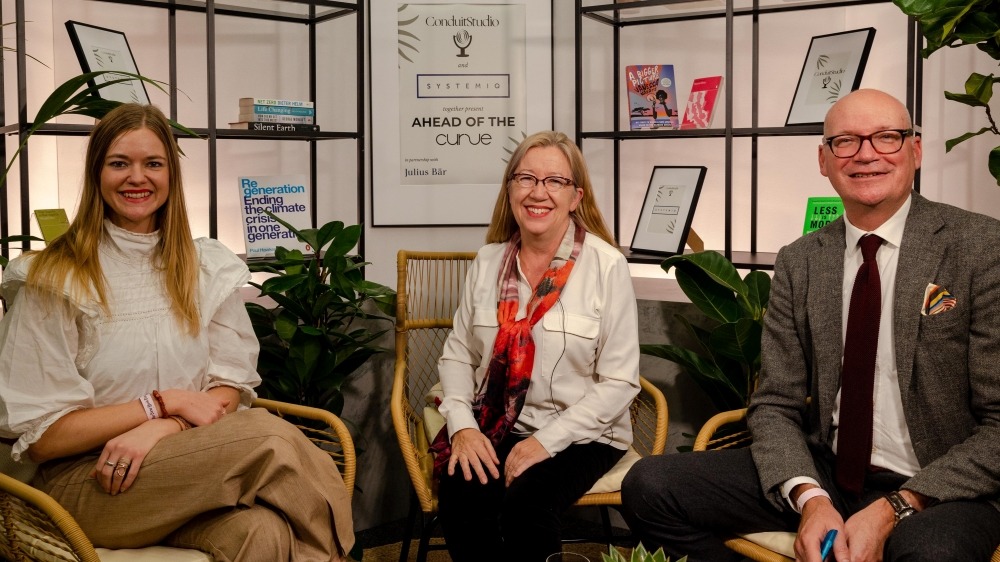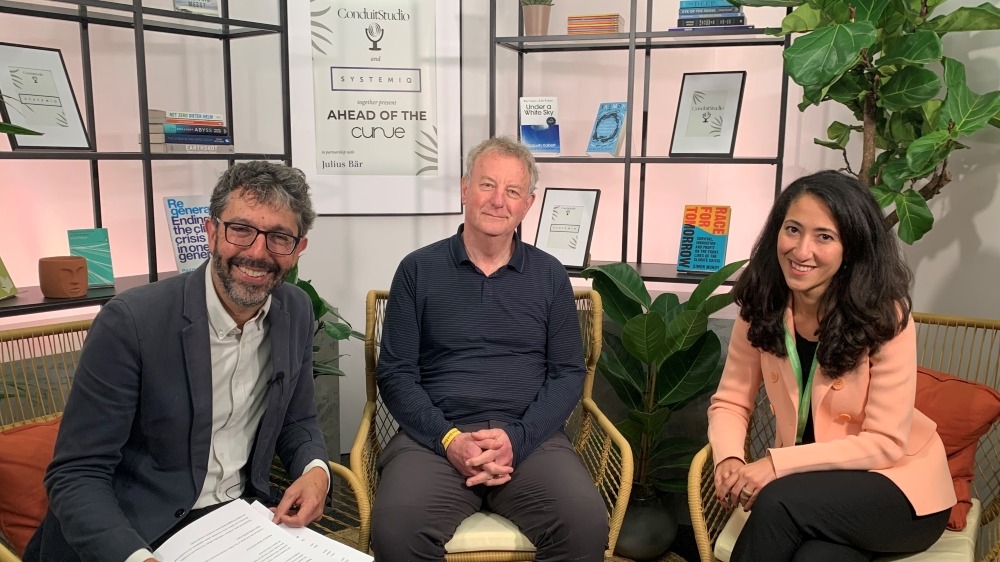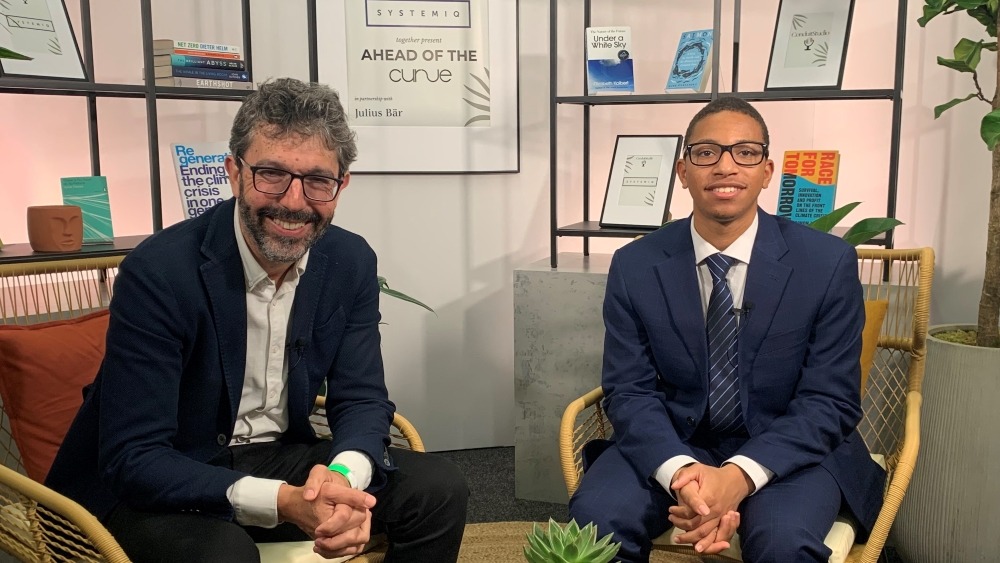The ‘Ahead of the Curve’ podcast, recorded at COP26, asks a unique range of experts about the progress we have already seen and the positive steps we can take to accelerate towards a net-zero economy.
What must we prioritise in this decisive decade to stay within 1.5C? And how we take the economic, social and environmental opportunities of this transformation? Over six conversations, recorded at COP26 in Glasgow, we learn where positive change is already occurring, where challenges remain, and what we can do about them now.
Spanning policy, business, civil society, finance and climate justice, Ahead of the Curve offers unique insights from the heart of the transformation of our society. A co-production between SYSTEMIQ and The Conduit, its guests include:
- Lord Nicholas Stern, Chairman of the Grantham Research Institute on Climate Change;
- Gonzalo Muñoz, COP High-Level Champion for Chile;
- Anne Simpson, Managing Investment Director, Board Governance and Sustainability CalPERS;
- Faustine Delasalle, Director of the Energy Transitions Commission;
- Katherine Stodulka, Director of the Blended Finance Taskforce;
- Social entrepreneur and author Jeremy Leggett;
- Talia Smith, Co-Director of Knowledge Generation at the Food and Land Use Coalition;
- Friend of COP26 James Cameron;
- Climate justice activist Jerome Foster II.
Episode 1 – Pursuing Positive Tipping Points
“New innovation is not necessary to get us to 50% reduction in emissions by 2030. We have many levers in our toolbox right now to get us there.”
The global economy is already seeing major market tipping points, where low-carbon solutions can out-compete high-carbon businesses. But, in terms of climate action, what do positive tipping points look like? How do we recognise and work towards them? SYSTEMIQ co-founder Jeremy Oppenheim talks with The Conduit’s Paul van Zyl, and the co-President of the Club of Rome, Sandrine Dixson-Decleve.
Episode 2 – Leadership in the Transition to a Net-Zero World
“The challenge is to go from vision to implementation. It entails a whole new level of trust to get projects off the ground.”
In conversation with Friend of COP26 James Cameron, Faustine Delasalle Director, Energy Transitions Commission) describes how new coalitions are creating a space for dialogue and radical collaboration. Gonzalo Muñoz, COP High Level Champion of Chile, tells Paul van Zyl about the leadership he has seen in his role as High-Level Climate Action Champion, the rise of B-Corps and the importance of increasing the resilience of communities across the world.
Episode 3 – Reducing the Cost of Capital
“It’s the first COP where the private sector and finance have been out in front….”
Friend of COP26 James Cameron and talks to Lord Nicholas Stern, Chairman of the Grantham Research Institute on Climate Change, to consider where finance is flowing and explain the economic, political, and societal conditions that will pivot capital towards green businesses.
Episode 4 – Reducing the Cost of Capital, part II
“We need to see the $100bn for climate finance as a floor, not a ceiling….”
Anne Simpson, Managing Investment Director Board Governance and Sustainability at CalPERS, and Katherine Stodulka, Director of the Blended Finance Taskforce, on the need for ‘radical transparency’ in the financial sector, and the power of blended finance to drive green investment in nascent markets.
Episode 5 – Nature, Land Use and Food
“For the first time, people are recognising that nature is central to the climate crisis….”
Jeremy Leggett, social entrepreneur and author, and Talia Smith, Co-Director of Knowledge Generation for the Food and Land Use Commission, tell us how transforming food and land use can accelerate us towards positive tipping points, and how investment and land use patterns will change once rewilding and nature-based solutions really take off.
Coming soon: Episode 6 – The Mainstreaming of Activism
“What drove me to activism is a fight for compassion, a fight for empathy.”
Jerome Foster II is an environmental activist, voting rights advocate, and emerging technology engineer, who sits on President Biden’s White House Environmental Justice Advisory Council. He and Paul van Zyl consider whether we, the average citizen, could be the most powerful trigger of tipping points. Can public awareness, coupled with activism, trigger rapid changes in government policy and in the markets?

